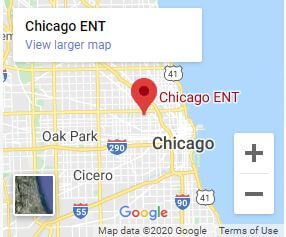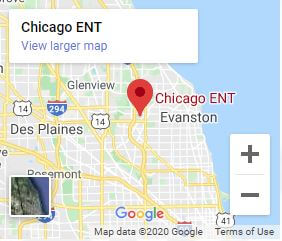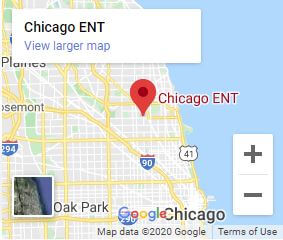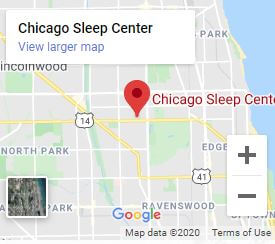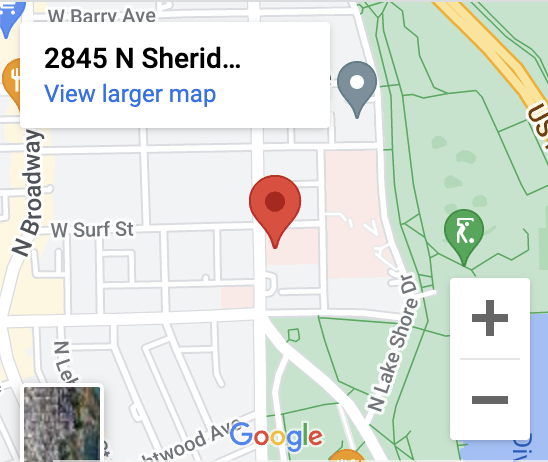Do you think you may have asthma, but you haven’t received an official diagnosis? If you think you have asthma, it’s necessary to obtain the correct diagnosis and set up a treatment plan.
At Chicago ENT, our expert asthma specialists will review your medical history and perform a thorough medical exam. From there, we’ll evaluate your diagnosis and come up with the best treatment option.
What is Asthma?
Asthma is a disorder that affects the lower airway within the lungs. You can develop asthma as a child or later in life as an adult.
People who have asthma are prone to what is called an asthma attack. During an asthma attack, the narrow part of the airway becomes inflamed.
When the airway becomes inflamed, it reduces the size of the airway’s opening, making it even narrower. It also limits how much air can flow in and out of the lungs.
For someone with asthma, this makes it even more challenging to get enough air and reduces the necessary oxygen that can make it into the bloodstream.
Asthma attacks can happen for a variety of reasons. Triggers include allergens, physical activity, cold air, and even emotional distress.
Sometimes the trigger is unidentifiable. Not only are individual asthma attacks distressing and uncomfortable, but frequent inflammation can have long-term effects on your health.
Chronic inflammation from asthma attacks can also lead to permanent damage to the airways and lifelong respiratory disease. Because of both the short-term and long-term effects, it’s crucial to have a proper diagnosis and treatment plan for asthma.
How Do You Know If You Have Asthma?
Anyone can have asthma, but certain factors can put you at a higher risk of developing it. If you’re a smoker, are frequently exposed to toxic fumes, or have allergies, you’re more likely to develop asthma.
You’re also more likely to develop asthma if you have a relative who has asthma. The only way to know if you have asthma is to be assessed by a medical professional.
You should see a professional if you experience the symptoms of an asthma attack. Be aware that asthma attacks may feel different for different people.
Some people feel like they are suffocating or can’t get enough air, while others may feel like they are breathing in cold air. But the thing most asthma attacks have in common is trouble breathing accompanied by coughing or wheezing.
If you experience any attacks that fit that description, you should see a doctor. Getting a diagnosis is the first step toward treatment.
Our specialists at Chicago ENT have several diagnostic tools that they’ll use to tell if you have asthma. First, one of our doctors will examine you.
They’ll look inside your throat and listen to your breathing with a stethoscope to get a sense of how you breathe regularly. After listening to your breathing, the doctor will use something called spirometry. Spirometry requires you to breathe into a tube that measures how strong your breath is.
It can be hard to assess you for asthma when you’re not experiencing an attack. One way to do it is to give you a small amount of asthma medication after measuring the strength of your breath once.
If your breath is stronger after taking the medication, it could signify that you have asthma. Another way to test you for asthma is to have you take what’s called a challenge test.
With a challenge test, your doctor will trigger an asthma attack after the first measurement and then measure your breath strength again. There’s no individual test to diagnose asthma. It’s up to your Chicago ENT doctor to assess you thoroughly and make an informed diagnosis.
How is Asthma Treated?
There is no cure for asthma, but it is possible to manage the symptoms. The primary way is with an inhaler, which gives a quick spray of medication directly to your airway, reducing inflammation and swelling.
This kind of medication is referred to as a quick-relief or rescue medication. Inhalers are supposed to be used to provide immediate relief from your asthma symptoms when you have an attack.
There are other medications that you can take for long-term asthma control. Your doctor may prescribe these medications to you alongside a rescue inhaler.
These medications are designed to treat daily symptoms and make it less likely that you’ll have an asthma attack. Long-term control medications may include corticosteroids and other drugs administered with an inhaler or by taking a pill.
One kind of medication is used for long-term control in patients with severe and allergy-triggered asthma. These are called biologic medications.
Biologic medications are made with parts of living cells rather than chemicals. These cell parts can attack a certain kind of white blood cell that causes inflammation.
At Chicago ENT, our specialists can prescribe Xolair or Nucala, two of the leading biologic drugs. They are administered through an injection. You can have this performed at your doctor’s office or with an auto-injector you can use on yourself at home.
A complete treatment plan for asthma should also include something called an asthma action plan. An asthma action plan is a plan you go over with your doctor that details what medications you take and when and lists diagnosed or potential triggers to avoid.
Your doctor may also ask you to track when you have asthma attacks to verify triggers and assess how well the treatment plan works.
Our allergy and asthma specialists at Chicago ENT will be able to work with you to come up with a treatment and action plan fully customized to your unique needs. Don’t hesitate to make an appointment if you think you may have asthma or if your existing asthma worsens.
Schedule yours now at Chicago ENT in Chicago, IL, to get a handle on your asthma symptoms for good!











